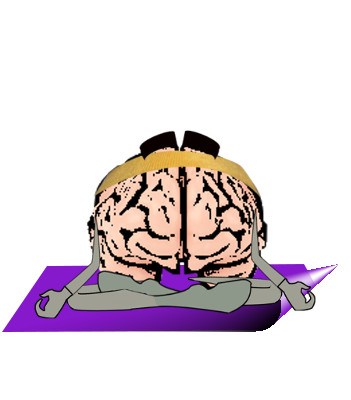
Yoga is not only beneficial for the physical aspects of golf but also for the mental health of golfers. The practice of yoga offers a range of techniques that can help golfers improve their mental well-being and enhance their performance on the course. Here are some key reasons why yoga is beneficial for golfers' mental health:
- Stress Reduction: Golf can be a mentally demanding sport, and the pressure to perform well can lead to stress and anxiety. Yoga provides a space for golfers to unwind, relax, and release stress. Through breathing exercises, meditation, and relaxation techniques, yoga helps activate the parasympathetic nervous system, promoting a state of calm and reducing stress levels.
- Increased Mindfulness: Mindfulness is the practice of being fully present in the moment without judgment. Golfers who cultivate mindfulness through yoga can develop greater focus and concentration on the course. By paying attention to their thoughts, emotions, and bodily sensations, golfers can better manage distractions, stay present in each shot, and make more conscious decisions.
- Improved Emotional Well-being: Yoga encourages self-awareness and introspection, allowing golfers to develop a deeper understanding of their emotions and reactions. This awareness helps golfers identify and manage negative emotions such as frustration, anger, or self-doubt, leading to improved emotional well-being and resilience.
- Enhanced Mental Resilience: Golfers face various challenges on the course, including setbacks, pressure, and unexpected outcomes. Yoga teaches resilience by cultivating a mindset of acceptance, adaptability, and non-attachment. Golfers learn to bounce back from setbacks, let go of past mistakes, and maintain a positive attitude throughout their rounds.
- Better Mental Focus: Golf requires concentration and mental clarity. Yoga enhances mental focus by training the mind to stay present and focused on the task at hand. Through breath control exercises and meditation, golfers develop the ability to quiet the mind, tune out distractions, and maintain a clear focus on each shot.
- Stress Management Techniques: Yoga provides golfers with practical tools for managing stress and anxiety on and off the course. Breathing exercises, such as deep belly breathing and alternate nostril breathing, can help regulate the nervous system and promote a state of relaxation. These techniques can be invaluable in high-pressure situations, helping golfers stay calm and composed.
- Self-confidence and Self-belief: Yoga fosters self-confidence and self-belief by promoting self-acceptance and self-awareness. Golfers who practice yoga develop a deeper connection with themselves, learning to trust their abilities and make decisions based on their intuition. This enhanced self-confidence translates into improved performance on the course.
- Positive Mindset: Yoga encourages positive thinking and cultivates an optimistic outlook. Through affirmations, visualizations, and positive self-talk, golfers can reframe negative thoughts and beliefs into more empowering ones. This positive mindset can have a profound impact on overall performance and enjoyment of the game.
- Emotional Regulation: Golf can elicit a range of emotions, from joy and excitement to frustration and disappointment. Yoga helps golfers develop emotional regulation skills, allowing them to better manage and navigate these emotions. By learning to observe and acknowledge their emotions without getting overwhelmed by them, golfers can maintain a more balanced and composed state of mind.
- Overall Well-being: Practicing yoga promotes overall well-being by fostering a healthy mind-body connection. It improves sleep quality, boosts mood, increases energy levels, and reduces symptoms of anxiety and depression. By taking care of their mental health through yoga, golfers can experience greater overall happiness and satisfaction in life and on the golf course.
Incorporating yoga into your golf routine can be a game-changer for your mental health. Whether it's through attending yoga classes, following online yoga sessions, or integrating simple yoga practices into your warm-up routine, the benefits are significant. Remember that consistency is key, and it's essential to find a yoga practice that suits your needs and preferences. Consult with a qualified yoga instructor to design a practice tailored to your specific goals and requirements.
The ‘gentle’ game of golf is, ironically, fraught with injury. Professional golfers – athletes, whose every move is under analysis – have at their disposal a team of sports physicians, ready to respond to even a minor ache.
So, how can the average golfer benefit from the ancient art of Yoga? This short introduction will provide an answer.
Yoga calms the mind.
Most schools of yoga promote meditation. Meditation calms the mind and improves functionality in any human activity, especially games requiring long periods of concentration. This point was not lost on Tiger Woods’ father, who remarked that ‘if you don't clutter your conscious mind with endless pointers and tips, you make it easier for your subconscious instincts to guide you.’ Yoga can help you ‘get in the zone’, and stay there longer.
Helps Strengthens the body for a better golf game.
Yoga involves a short series of daily exercises, or ‘asanas’, that strengthen the core of the body, allowing for able and complete movement throughout the day. The key is consistency; fifteen minutes a day of Yoga will provide benefits on the course that will last the whole game. Improved and painless movement in the hips and spine – crucial for golf, will leave most golfers wondering why they didn’t stumble upon yoga earlier.

What style of yoga should I choose?
There are many schools of yoga; a glance at the phonebook will often reveal a sometimes dazzling array. Broadly speaking, Hatha Yoga is more gentle and meditative; it is the best way into yoga for the beginner. Hatha yoga focuses on the control of the breath, and thus the mind, and promotes a series of basic asanas for the beginner which will be of great use for any golfer. Whilst yoga has been developed over centuries and there are many schools and styles worth exploring, but leave the more complex styles for later.
The benefits outweigh the cost
For relatively little cost, the average golfer can benefit both physically and mentally, from the ancient art of yoga. The benefits of yoga are cumulative, from a little daily practise comes many returns. Initially your golf swing will feel a little more comfortable, that lower back ache on the 16th hole more distant, and, with continued practise, a whole new way of playing awaits you. Great coaches know about utilising both the physical and the ‘subconscious’ mind, why not learn about the benefits of yoga yourself?





